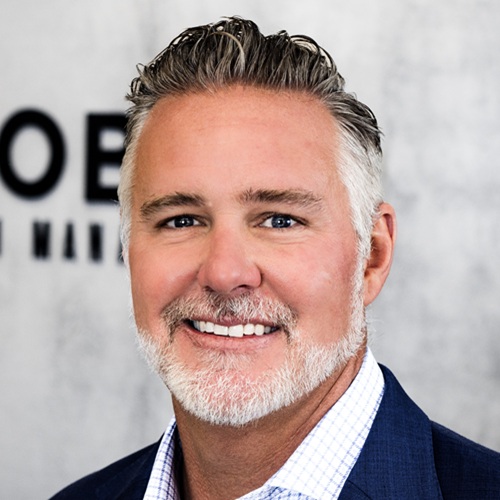Trapped by Capital Gains? Opportunity Zone Funds Provide a Way Out
Investing in funds to fix up a troubled neighborhood can do some good for the area in question and for your own tax situation.

Profit and prosper with the best of Kiplinger's advice on investing, taxes, retirement, personal finance and much more. Delivered daily. Enter your email in the box and click Sign Me Up.
You are now subscribed
Your newsletter sign-up was successful
Want to add more newsletters?
It’s tough to think of a highly appreciated asset as the problem child in a portfolio. The goal is to choose investments that will flourish, after all. And those strong performers are typically the ones you love best and hold onto the longest.
But things can get complicated when it’s time to let go — when that stock stops growing and you’re ready to sell, or when you’re preparing to part with a valuable business or piece of property.
That’s because the federal government likes winners, too — and thanks to capital gains taxes, you could end up sharing a hefty portion of your profit with the IRS.
From just $107.88 $24.99 for Kiplinger Personal Finance
Become a smarter, better informed investor. Subscribe from just $107.88 $24.99, plus get up to 4 Special Issues

Sign up for Kiplinger’s Free Newsletters
Profit and prosper with the best of expert advice on investing, taxes, retirement, personal finance and more - straight to your e-mail.
Profit and prosper with the best of expert advice - straight to your e-mail.
But there are strategies that can help.
I’ve written here before about using a 1031 Exchange or a Deferred Sales Trust to defer capital gains taxes when selling real estate. But now a newer strategy is giving the 1031 and DST some competition; it’s called a Qualified Opportunity Zone Fund. And you can use it with any investment that will trigger capital gains.
Like any investment strategy, it comes with risks, and it’s not for everyone. But for those who feel trapped by capital gains, the tax savings and potential for profit make it worth looking into.
What is a Qualified Opportunity Zone Fund?
- Opportunity Zone Funds became part of the tax code with the Tax Cuts and Jobs Act of 2017. The funds are created by partnerships or corporations that invest in eligible properties within designated Opportunity Zones.
- The IRS defines an Opportunity Zone, or O-Zone, as an “economically-distressed community where new investments, under certain conditions, may be eligible for preferential tax treatment.” In other words, the communities on the receiving end of these funds hope to benefit from revitalization, while investors can reap tax benefits by putting their money toward those improvements.
- In order to qualify, an Opportunity Zone Fund must invest at least 90% of its capital in O-Zone property.
How does it work for the investor?
- When an investor sells an asset, he or she can roll any amount of the gain into an Opportunity Zone Fund within 180 days of the sale. The investor can then defer capital gains taxes on that amount until Dec. 31, 2026, or until the Opportunity Zone Fund investment is sold or exchanged (whichever comes first).
- An investor who keeps the money in the Opportunity Zone Fund for at least five years can defer payment of capital gains and exclude 10% of the taxable gains from the original amount invested.
- If the investor keeps the money in the fund for at least seven years, he or she can exclude another 5% (for a total of 15%) of the taxable gains from the original amount invested.
- Investors who hold the money in the fund for at least 10 years can exclude 15% of the original amount invested. In addition, any accrued capital gains generated from the investment are 100% tax exempt.
So, let’s say an investor sells an asset and has a $100,000 tax liability. By holding the money in an Opportunity Zone Fund for 10 years, the investor would avoid paying capital gains taxes for a decade, reduce his liability to $85,000, and any gain on the money invested in the fund would be tax-free.
What are the risks?
Because this is a new investment strategy, there are some uncertainties, including:
- The IRS and Department of Treasury are still working on the specifics of how Opportunity Zone Funds will work over time — both for investors and those in charge of the funds. So, you may enter into this investment with questions that can’t be answered just yet. (That doesn’t mean you shouldn’t ask, though.)
- Because the areas earmarked for improvement are distressed, recovery may not go as quickly as planned — and a fund won’t gain in value if the targeted community and its businesses aren’t gaining in value. So, like any investment, there’s no guarantee you’ll make money.
- The tax plan is currently set to sunset on Dec. 31, 2026. If it isn’t extended, investors would be required to begin paying taxes on accrued capital gains after this date, regardless of how long they hold on to the fund as an investment.
Did I mention that this isn’t for everybody? As a matter of fact, you must be an “accredited” investor in order to participate, meaning investors who have a net worth exceeding $1 million and/or an annual income exceeding $200,000 individually or $300,000 for joint households.
However, it can be an appealing alternative for those who want to diversify, who might like the idea of an investment with social impact or are seeking a long-term investment with tax benefits.
If you think it could be a fit with your overall financial plan, be sure to discuss the pros and cons with your tax or financial professional. Ask for a comparison of the benefits of investing in Opportunity Zones vs. a 1031 Exchange or Deferred Sales Trust. And talk about the funds available and how to choose the right one.
Currently, the number of funds is limited, but once the Treasury Department finalizes its regulations, you can expect to see more — and more investor interest.
Kim Franke-Folstad contributed to this article.
This material is for informational purposes only. It is not intended to provide tax, accounting or legal advice or to serve as the basis for any financial decisions. Individuals are advised to consult with their own accountant and/or attorney regarding all tax, accounting and legal matters. Securities offered only by duly registered individuals through Madison Avenue Securities, LLC (MAS), member FINRA/SIPC. Advisory services offered only by duly registered individuals through Global Wealth Management Investment Advisory (GWM), a Registered Investment Advisor. MAS and GWM are not affiliated entities. For accredited investors only.
The appearances in Kiplinger were obtained through a PR program. The columnist received assistance from a public relations firm in preparing this piece for submission to Kiplinger.com. Kiplinger was not compensated in any way.
Profit and prosper with the best of Kiplinger's advice on investing, taxes, retirement, personal finance and much more. Delivered daily. Enter your email in the box and click Sign Me Up.

Grant Conness is Managing Director and Co-Founder of Global Wealth Management, recognized as the No. 1 financial advisory firm in Southeast Florida by USA TODAY's 2025 Best Financial Advisory Firms list.* With more than 20 years of experience, Grant focuses on helping clients navigate the critical five years before and after retirement through the firm's proprietary Retirement Roadmap Review process. Grant is co-host of Retire Now South Florida on NBC, CBS, ABC and FOX, and he has been quoted in The Wall Street Journal.** He is also co-author of Charting Your Financial Course.
-
 Timeless Trips for Solo Travelers
Timeless Trips for Solo TravelersHow to find a getaway that suits your style.
-
 A Top Vanguard ETF Pick Outperforms on International Strength
A Top Vanguard ETF Pick Outperforms on International StrengthA weakening dollar and lower interest rates lifted international stocks, which was good news for one of our favorite exchange-traded funds.
-
 Is There Such a Thing As a Safe Stock? 17 Safe-Enough Ideas
Is There Such a Thing As a Safe Stock? 17 Safe-Enough IdeasNo stock is completely safe, but we can make educated guesses about which ones are likely to provide smooth sailing.
-
 Missed Your RMD? 4 Ways to Avoid Doing That Again (and Skip the IRS Penalties), From a Financial Planner
Missed Your RMD? 4 Ways to Avoid Doing That Again (and Skip the IRS Penalties), From a Financial PlannerIf you miss your RMDs, you could face a hefty fine. Here are four ways to stay on top of your payments — and on the right side of the IRS.
-
 What Really Happens in the First 30 Days After Someone Dies (and Where Families Get Stuck)
What Really Happens in the First 30 Days After Someone Dies (and Where Families Get Stuck)The administrative requirements following a death move quickly. This is how to ensure your loved ones won't be plunged into chaos during a time of distress.
-
 AI-Powered Investing in 2026: How Algorithms Will Shape Your Portfolio
AI-Powered Investing in 2026: How Algorithms Will Shape Your PortfolioAI is becoming a standard investing tool, as it helps cut through the noise, personalize portfolios and manage risk. That said, human oversight remains essential. Here's how it all works.
-
 A Newly Retired Couple With a Portfolio Full of Winners Faced a $50,000 Tax Bill: This Is the Strategy That Helped Save Them
A Newly Retired Couple With a Portfolio Full of Winners Faced a $50,000 Tax Bill: This Is the Strategy That Helped Save ThemLarge unrealized capital gains can create a serious tax headache for retirees with a successful portfolio. A tax-aware long-short strategy can help.
-
 5 Retirement Myths to Leave Behind (and How to Start Planning for the Reality)
5 Retirement Myths to Leave Behind (and How to Start Planning for the Reality)Separating facts from fiction is an important first step toward building a retirement plan that's grounded in reality and not based on incorrect assumptions.
-
 I'm a Financial Adviser: Silence Is Golden, But It Hurts Your Heirs More Than You Think
I'm a Financial Adviser: Silence Is Golden, But It Hurts Your Heirs More Than You ThinkTalking to heirs about transferring wealth can be overwhelming, but avoiding it now can lead to conflict later. Here's how to start sharing your plans.
-
 Will Your Children's Inheritance Set Them Free or Tie Them Up?
Will Your Children's Inheritance Set Them Free or Tie Them Up?An inheritance can mean extraordinary freedom for your loved ones, but could also cause more harm than good. How can you ensure your family gets it right?
-
 I'm a Financial Adviser: This Is the Real Key to Enjoying Retirement With Confidence
I'm a Financial Adviser: This Is the Real Key to Enjoying Retirement With ConfidenceA resilient retirement plan is a flexible framework that addresses income, health care, taxes and investments. And that means you should review it regularly.